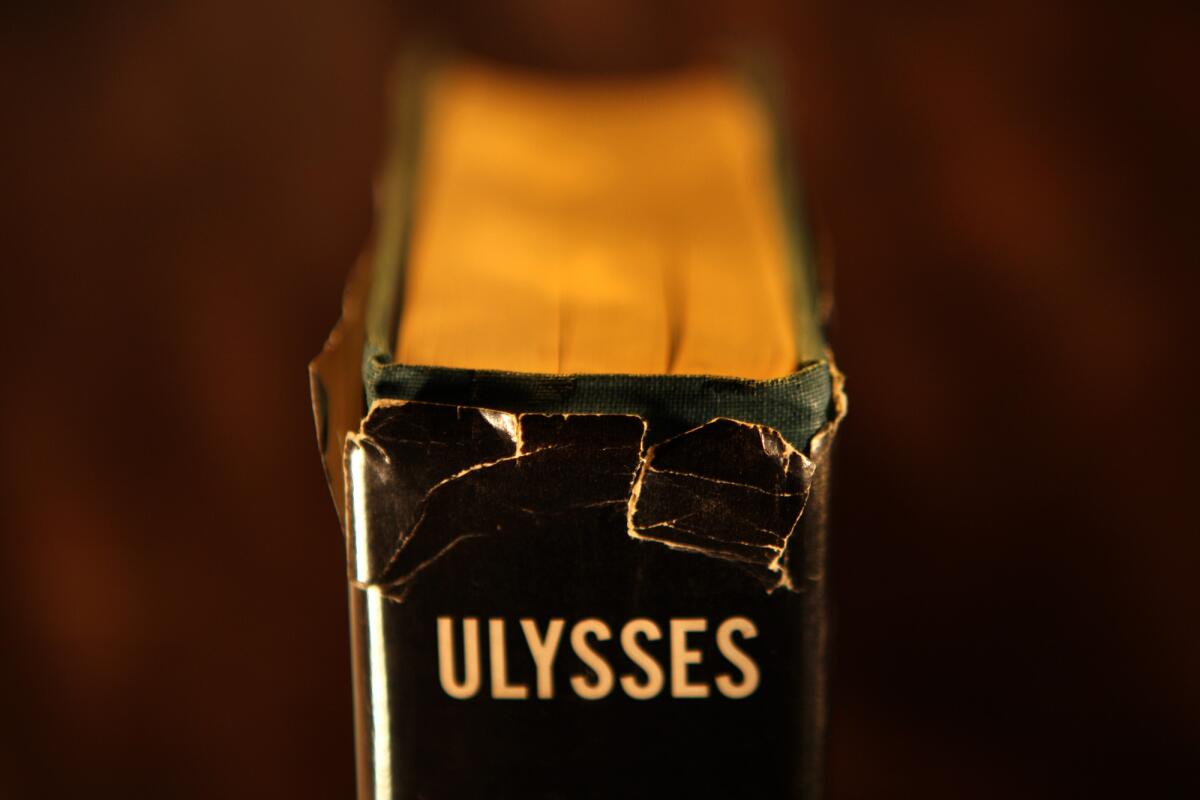James Joyce likely had syphilis, new history of ‘Ulysses’ surmises

- Share via
James Joyce famously struggled with eye problems for much of his life, ending up nearly blind. Of his declining vision, Joyce said in 1931: “I deserve all this on account of my many iniquities.” According to a new book by a Harvard scholar, that statement was Joyce’s thinly veiled admission that he had contracted, and suffered for decades, with a sexually transmitted disease.
Kevin Birmingham, a lecturer in history and literature at Harvard, uncovered new evidence that Joyce suffered from syphilis and wrote about it in “The Most Dangerous Book: The Battle for James Joyce’s Ulysses,” his new history of the controversy over the publication of the Irish author’s masterpiece.
Birmingham’s book covers much ground related to Joyce’s career, and the circle of writers, editor, publishers and friends who helped bring “Ulysses” to print and defended it against legal attacks. The Guardian interviewed Birmingham on the writer’s maladies and Birmingham’s extensive efforts to identify what they were.
“The Harvard scholar decided to ‘turn over every stone’ to find out what might have caused Joyce’s deteriorating vision, compiling references to every symptom and treatment the author had,” the Guardian reported. “One item in particular sparked his curiosity: Joyce’s reference in two separate 1928 letters to the injections of arsenic and phosphorous he was receiving.”
Joyce, Birmingham concluded, was receiving injections of galyl, a drug that was only used to treat syphilis. (The current treatment for the disease, penicillin, only came into to widespread use in the 1940s). Joyce had contracted the disease as early as 1907.
Birmingham’s book is due out from Penguin Press later this month. The bulk of the book is concerned with the many literary taboos Joyce broke in “Ulysses.”
“Female sexuality simply wasn’t something an author could write about — it seemed to be a force that could break marriages and families apart. Joyce confronted those fears directly,” Birmingham said in an interview with Library Journal. “Beyond that, Ulysses seemed to overturn all traditions, standards, and codes — it violated all of the rules of literature.”
More to Read
Sign up for our Book Club newsletter
Get the latest news, events and more from the Los Angeles Times Book Club, and help us get L.A. reading and talking.
You may occasionally receive promotional content from the Los Angeles Times.








